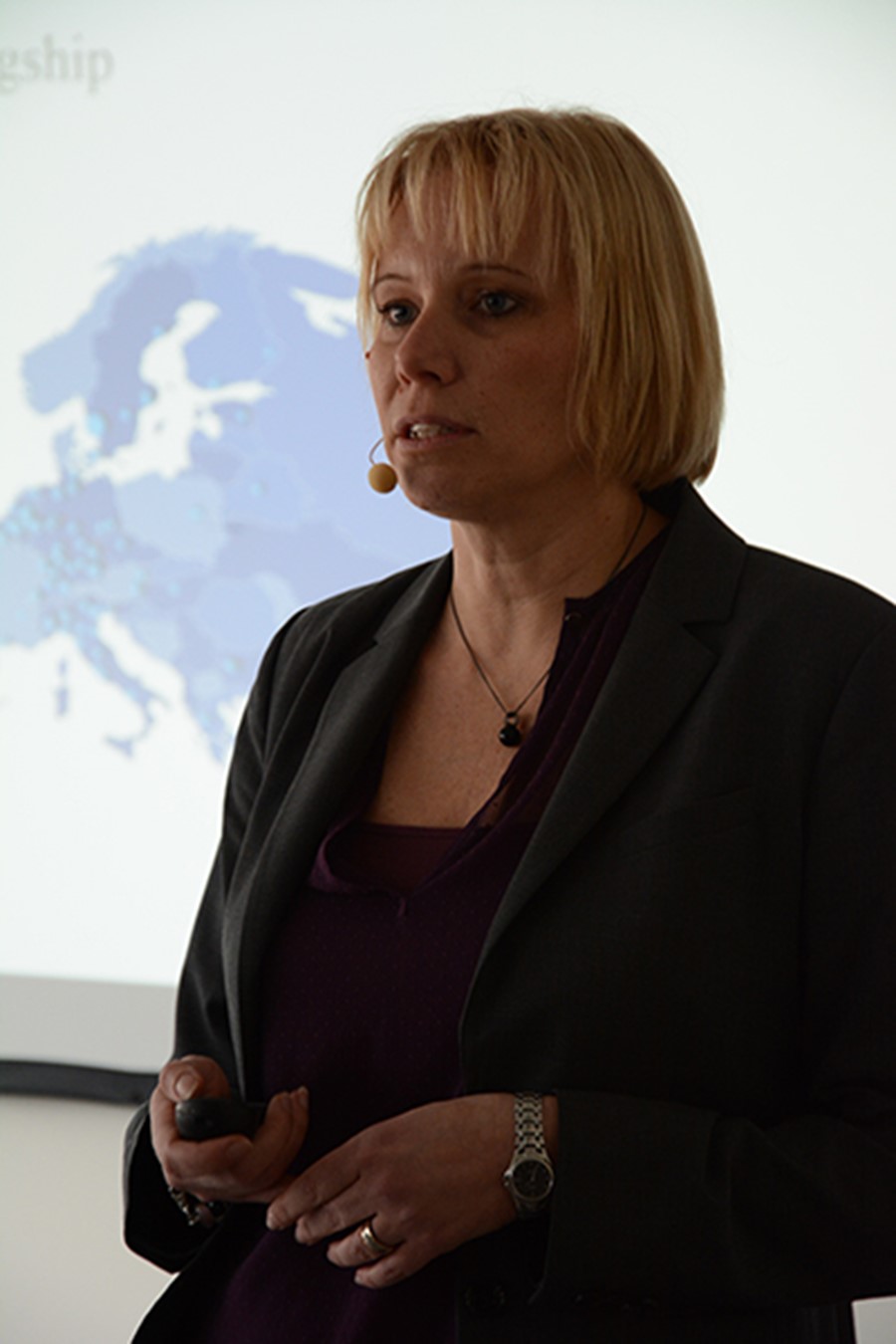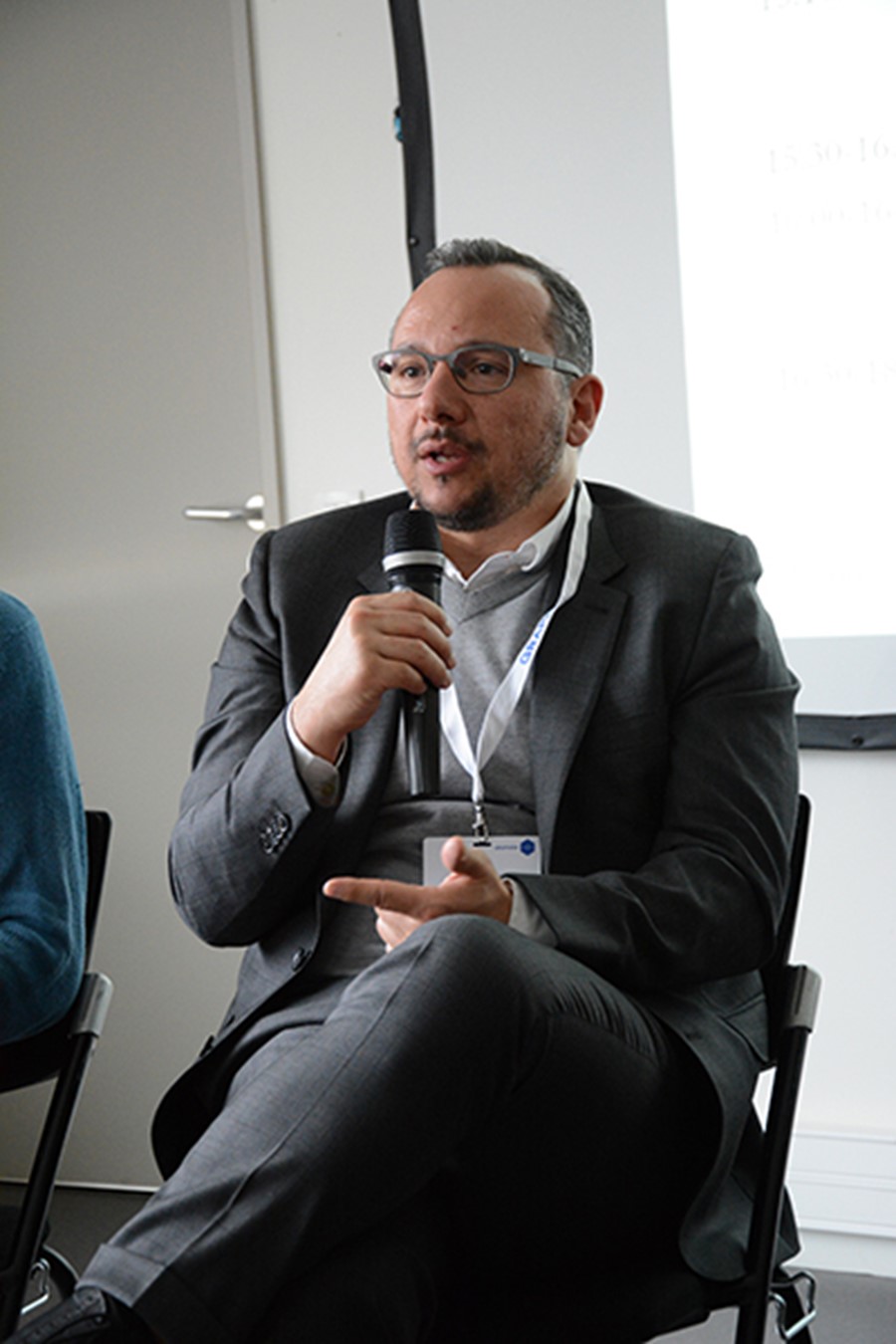Graphene Connect: Bridging the Academia – Industry Divide
Graphene Connect is a series of workshops born out of the basic principle of the Graphene Flagship – to take Graphene out of the academic laboratory and into society. The workshops help to make the connections and introductions that are needed to allow graphene to fulfil it potential by bridging the gap between academia and industry. Graphene Connect is also focused on creating this ecosystem within Europe – to really create a whole value chain that will enable Europe, the birth place of graphene, to reap its rewards.
The first Graphene Connect workshop happened in 2014 and was part of Graphene Week (a conference also organised by the Graphene Flagship) and centred around Nanocomposites. There have been six other workshops since then either run as stand-alone events or as part of a wider conference. All have focused on different areas of graphene research, sensors, energy, optoelectronics and photonics, materials and production, investment opportunities and most recently in February 2016 biomedical technology. The topics have all be chosen due to the technology readiness level of the field, which is very important for industry engagement.
These workshops are designed to be small intimate affairs to give the researchers from academia and industry time to get to know each other and really work out how they might work together going forward. With a participant list of between forty and seventy people it’s a good opportunity to hear from those involved and have the time to interact with them. Graphene Connect gives the participants the time not only to learn from the best but also prioritises discussion and networking sessions. Attendees have the opportunity to ask questions as well as to meet like-minded people with a shared goal - to use graphene to its full potential.
Each Graphene Connect workshop has been located in a different European city and as it continues to grow it continues to move around Europe. With companies attending such as AstraZeneca, GlaxoSmithKline and Denso-auto, through to a number of different companies who manufacture graphene it really gives people the range of opportunities to make good partnerships and really helps to push forward the potential for graphene technology.
Amer Ali, from Graphensic AB, a company who produces graphene on silicon carbide talks about the conference “I think the graphene connect workshop we attended was a great opportunity to measure the pulse on the applications. We got in touch with both skilled researchers and industry incumbents genuinely interested in what we do.”
The Graphene Flagship, who run Graphene Connect is the EU’s biggest ever research initiative. With a budget of €1 billion, it represents a new form of joint, coordinated research initiative on an unprecedented scale. Through a combined academic-industrial consortium, the research effort covers the entire value chain, from materials production to components and system integration, and targets a number of specific goals that exploit the unique properties of graphene. Tasked with bringing together academic and industrial researchers to take graphene from the realm of academic laboratories into European society in the space of ten years, the Graphene Flagship hopes to facilitate economic growth, new jobs and new opportunities for Europeans as both investors and employees.
The Graphene Flagship has just entered the third year of its life. For the first two years each area of the Flagship was separated into work packages, which ranged from production, to sensors, to innovation and dissemination.
Dr Helena Theander, from Chalmers Industriteknik in Sweden is the deputy leader of the work package Innovation. The work package Innovation has been charged with helping to transition research out of the academic laboratory and she has run each of the seven Graphene Connect workshops. Here she talks about the Graphene Connect and why she thinks it is important
“Graphene Connect was set up simply to connect industry to academia. Often participants from industry arrive with a very limited knowledge of graphene and how it might be used within their business. They have often read about graphene in the news and thought it sounds interesting but arrive simply not knowing what to expect. They chose to attend the Graphene Connect conferences because it enables them to interact with a wide range of different people from high level researchers to other industries research and development departments. This gives those industry representatives the chance to ask questions and get answers – essentially there is a low threshold of knowledge needed to attend the workshops. Also, by inviting high level speakers from companies already working on graphene are also motivated to attend the event. This gives a chance for companies to meet and see how they can use their complimentary skills going forward”.
With the main outcome of these Graphene Connect series to connect people it's a testament to their success when then can be seen to occur. At the recent Graphene Connect on Biomedical Technologies Dr Theander talks further about the first day of the workshop.
“Graphene Connect started with a lunch and you could already see people who had never met each other before having really in-depth conversations – people who have a large knowledge about graphene sharing it with others, and people who have come to understand graphene possibility’s talking about their problems and what drew them to the conference”.
Dr. Daniel Chew, Director of Neural Interfaces for GlaxoSmithKline talked about his involvement with the Graphene Connect Bio Conference “I was asked to speak at the conference by Professor Kostas Kostarelos and saw it as a good opportunity to understand more about the field and the researchers involved. I wanted to understand more about the 'translational potential' and associated risk of graphene as well as the medical applications. Attending the conference helped to answer a lot of my questions and it was really good to see a wide interest in graphene from different industry sectors".
Each Graphene Connect has its own unique flavour with some being lead more by academics and others by industry. It is also an excellent opportunity for academics to hear first-hand about industry challenges and to set into motion new ideas to help overcome some of these hurdles.
There are some common themes that run through all Graphene Connects; standardisation, characterisation and uniformity of graphene samples. It is really clear from these common discussion points that the graphene community as a whole needs to do more to address the fears of industry. Industrial researchers want the insurance that materials will continue to be available in the same quality going forward in the future. Batch to batch variability is a major concern.
Over the next two years the Graphene Flagship undertakes its first Core Project as part of the Horizon 2020 phase and six more Graphene Connect workshops are planned.
Kostas Kostarelos, Leader of the Nanomedicine Lab at the University of Manchester was the keynote speaker at the recent Biomedical Technology workshop and spoke about his experience “The workshops are so important because they help to give companies a better understanding of graphene and how it can shape their roadmap going forward”.
At the most recent Biomedical Technologies workshop there was lots of talk around exciting potential applications such as smart clothes, sensor systems, wearables, packaging, electrodes and ways that graphene can be used within the body.
For the researchers in the field it was exciting to see clinical experts such a surgeons talking about deep brain implant and how graphene might be able to help in the future.
Talking further about the recent Biomedical Technology Workshop Dr Theander really outlines how exciting and interesting this field is “There is a company, Pixium Vision who have produced retina implants. These implants enable people who have been blind for their whole life to see – to be able to distinguish object on a table and being able to view a video of people seeing for the first time was a pretty special experience” Talking further about how graphene can help ”Pixium Vision want to make better implant and one of the key factors is to increase the number of pixels per frame. At the moment the implants only have a 12 pixel per frame but graphene can essentially help to increase this – using graphene in combination with their technology can help people to see better!”.
This really highlights how the Graphene Connect workshops are an important series of events to bring people together and help to forward graphene commercialisation.

Graphene Connect was set up simply to connect industry to academia. Often participants from industry arrive with a very limited knowledge of graphene and how it might be used within their business (...)"
Dr

The workshops are so important because they help to give companies a better understanding of graphene and how it can shape their roadmap going forward”.
Professor



